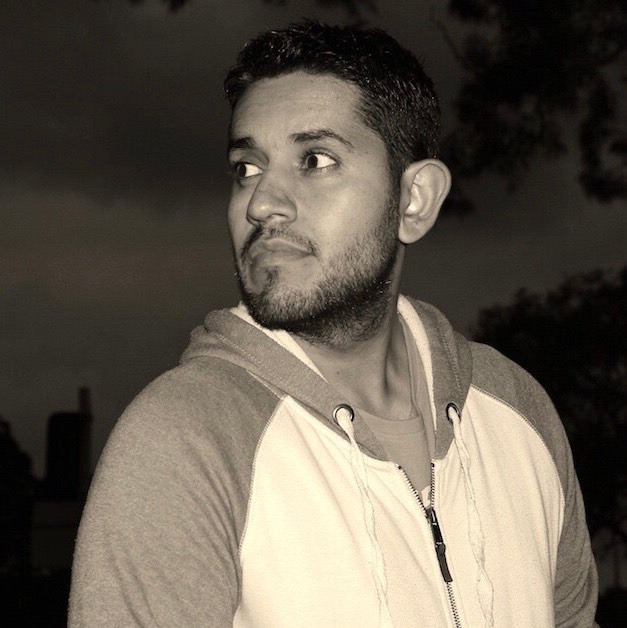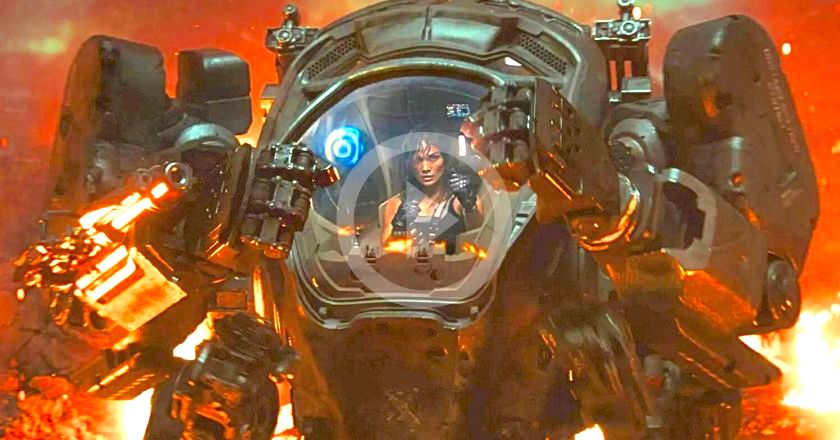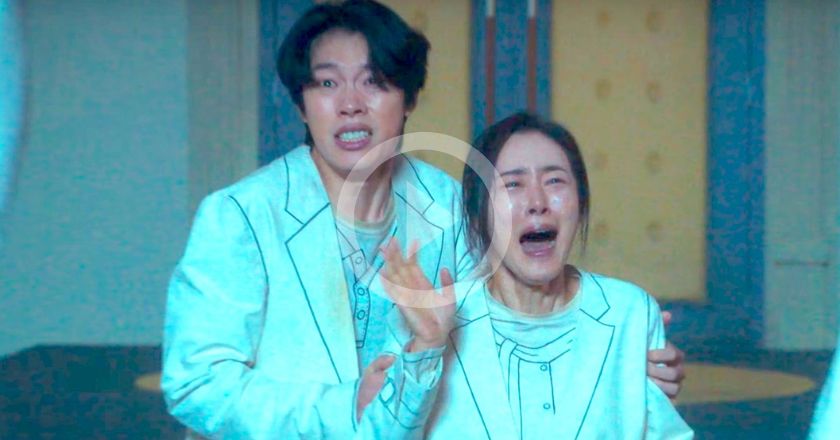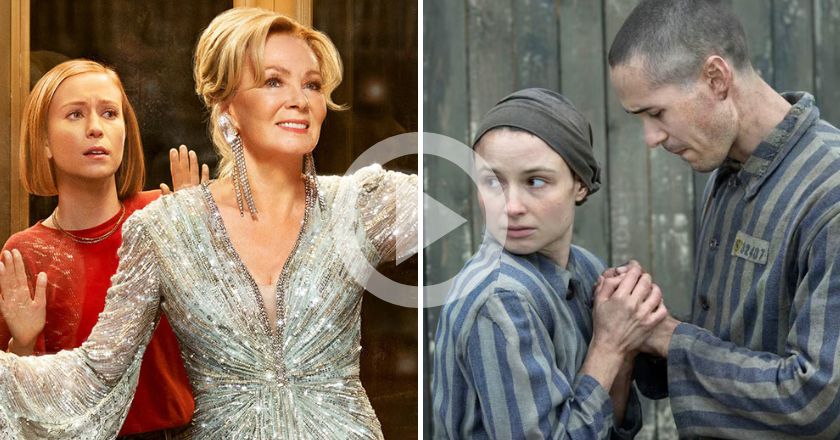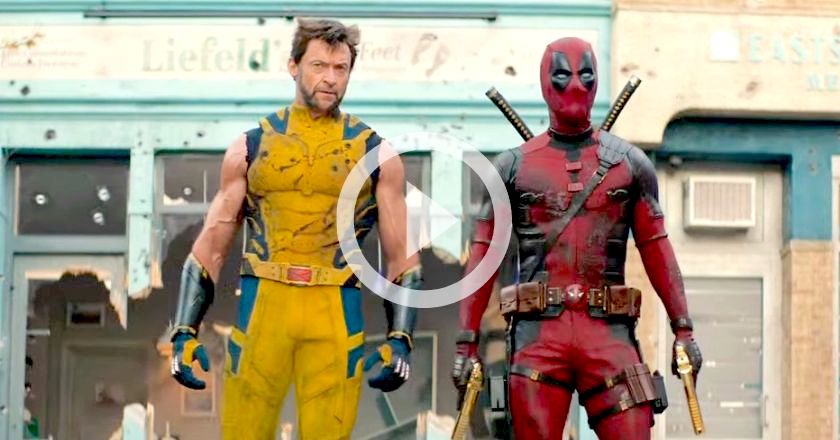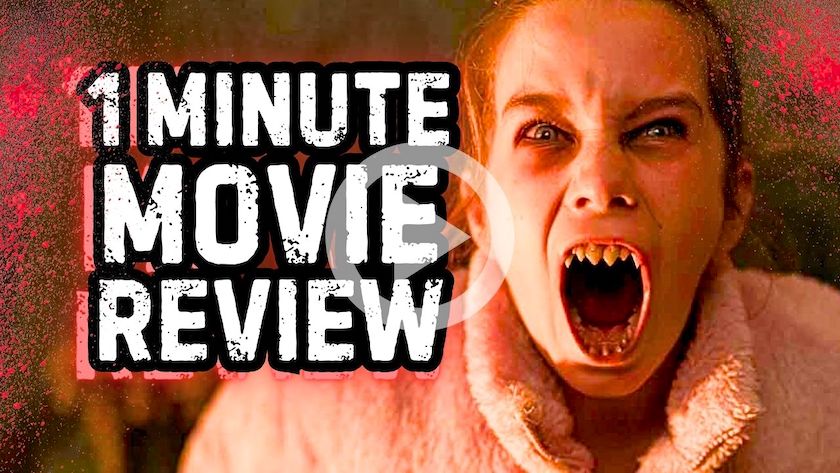[Watch the complete review above or read it below!]
–
A family must make a devastating choice in order to save the world in the fifteenth feature as director for filmmaker M. Night Shyamalan, whose many credits include The Sixth Sense, Signs, Unbreakable, and Split.
If you’ve seen the marketing, you’ll already know Knock at the Cabin’s thought-provoking concept: a family of three – two fathers, Eric and Andrew (played by Jonathan Groff and Ben Aldridge), and their 7-year-old daughter Wen (Kristen Cui) – have their remote-cabin vacation invaded by four strangers. The strangers, led by the imposing and surprisingly kind Leonard (Dave Bautista), claim they have arrived to ensure that this family kill one of their own. The individual can’t take their own life; the family must willingly pick a sacrifice. Should they refuse, the apocalypse will unfold. Just about everyone on the planet will die. Earth, as we know it, will be no more.
The film, by the way, is based on the award-winning 2018 novel The Cabin at the End of the World by author Paul Tremblay, which I haven’t read, so I won’t be touching on whether or not the film adapts the source material well.
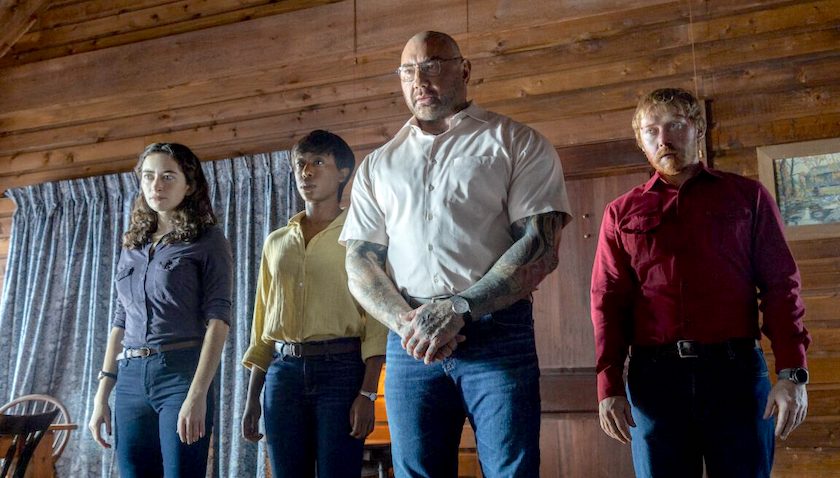

Knock at the Cabin is a film that firmly relies on the viewer’s willingness to accept its fantastical conceit – or at least buy into the possibility that what these four individuals are saying could be real. This is a home invasion thriller with a mystery at its core. The mystery itself: are these doomsayers speaking the truth, are they deranged cultists, or do they have ulterior motives altogether? It’s the type of film that benefits from knowing little going in – which, in retrospect, makes the film’s footage-heavy trailers and TV spots a bit of a questionable marketing approach.
There is heavy tension throughout this dark tale – and I’m not just talking about the well-directed sequences. Shyamalan and co-writers Steve Desmond and Michael Sherman keep intrigue and emotions cranked all the way up with a character-driven angle. It’s a high concept film, but as we know, even the greatest concepts in film are brought down if we don’t care about or understand the reasoning of who we’re watching on screen. Thankfully, the characters here are very well drawn. Eric, Andrew and Wen are a sweet family, and the sporadic flashbacks nicely paint their backstory, providing layers – even if, perhaps, simplistic layers – to draw us into their plight. I found myself really caring for this trio, adding to the nail-biting suspense and the frustration of their predicament’s futility.
Key to the film working on an emotional level are the performances. Groff and Aldridge are both fantastic as fathers and husbands who find themselves caught up in a terrifying and heartbreaking predicament. Throughout the film, the actors are pushed to reach down into really dark emotions, from anger to desperation, often while Shyamalan gets that lens right up to their faces in effective extreme closeups. And as Shyamalan has shown before, he certainly knows how to direct children. Young Kristen Cui is completely convincing as this adorable little girl forced to endure a situation no child should be facing.


As the leader of the group, who may be either villains or heroes, depending on how you approach their setup, Dave Bautista puts in an impressive performance. The wrestler-turned-actor contrasts his naturally imposing formidable size and presence with an unexpected tenderness that further unsettles. Leonard is a curious character; while he’s certainly chilling, I found that I felt sorry for him and understood his sadness. A strong screenplay, yes, but Bautista’s performance is what really makes Leonard the key figure in our story’s flipside. While it’s easy to approach this story with the family as the emotional focal point, it’s interesting that you could also view it with Leonard and his team’s story as the drive.
The supporting cast – including Nikki Amuka-Bird, Abby Quinn and Rupert Grint – are all solid in their smaller-yet-key roles.
It’s no secret that Shyamalan’s output over the years has been firmly mixed on the quality scale. Knock at the Cabin, thankfully, finds the filmmaker using the basics to great result. Working within a taut narrative, with what is essentially one setting, and just a handful of characters, Shyamalan is able to focus on telling his straightforward – perhaps surprisingly straightforward – story in lean, mean fashion. While Shyamalan’s narratives have been polarising over the years, the man knows how to craft a suspense sequence and frames to great effect. There’s absolutely fantastic cinematography here by directors of photography Jarin Blaschke (The Northman, The Witch) and Lowell A. Meyer (Servant), with stunning angles and a focus on atmosphere that further ramps up the tension. Technically, it’s a stunning film.
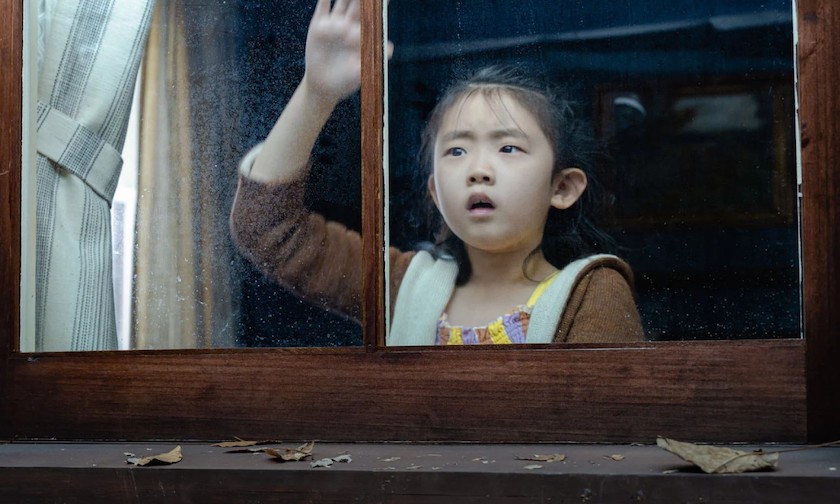

Personally, Knock at the Cabin caught me in its grasp. I found it easy to be carried away with the concept – and to even buy the sometimes-questionable choices made by a number of the characters. That being said, I can see certain plot development and narrative choices polarising audiences. I mentioned flashbacks earlier, for example. While I think the flashbacks and the decision to provide our characters with depth – character textures from cultural to familial – provide us more well-rounded characters to empathise with, there is a question as to just how much those backstory plot points serve the film’s concept and conclusion. Also, and I’m going to be careful to not give anything away, I can see viewers approaching the narrative pieces in the hopes of putting together a jaw-dropping puzzle at the end. Let’s just say that it may be best to remove expectations gathered from Shyamalan’s past films.
I was left impressed by Knock at the Cabin. I found much of it to be incredibly intense, and it’s also more visceral than I expected. Importantly, I thought it was a surprisingly emotional story, fuelled by excellent performances and strong direction by Shyamalan. The film’s “what would you do?” narrative also makes for a good, but dark conversation starter.



